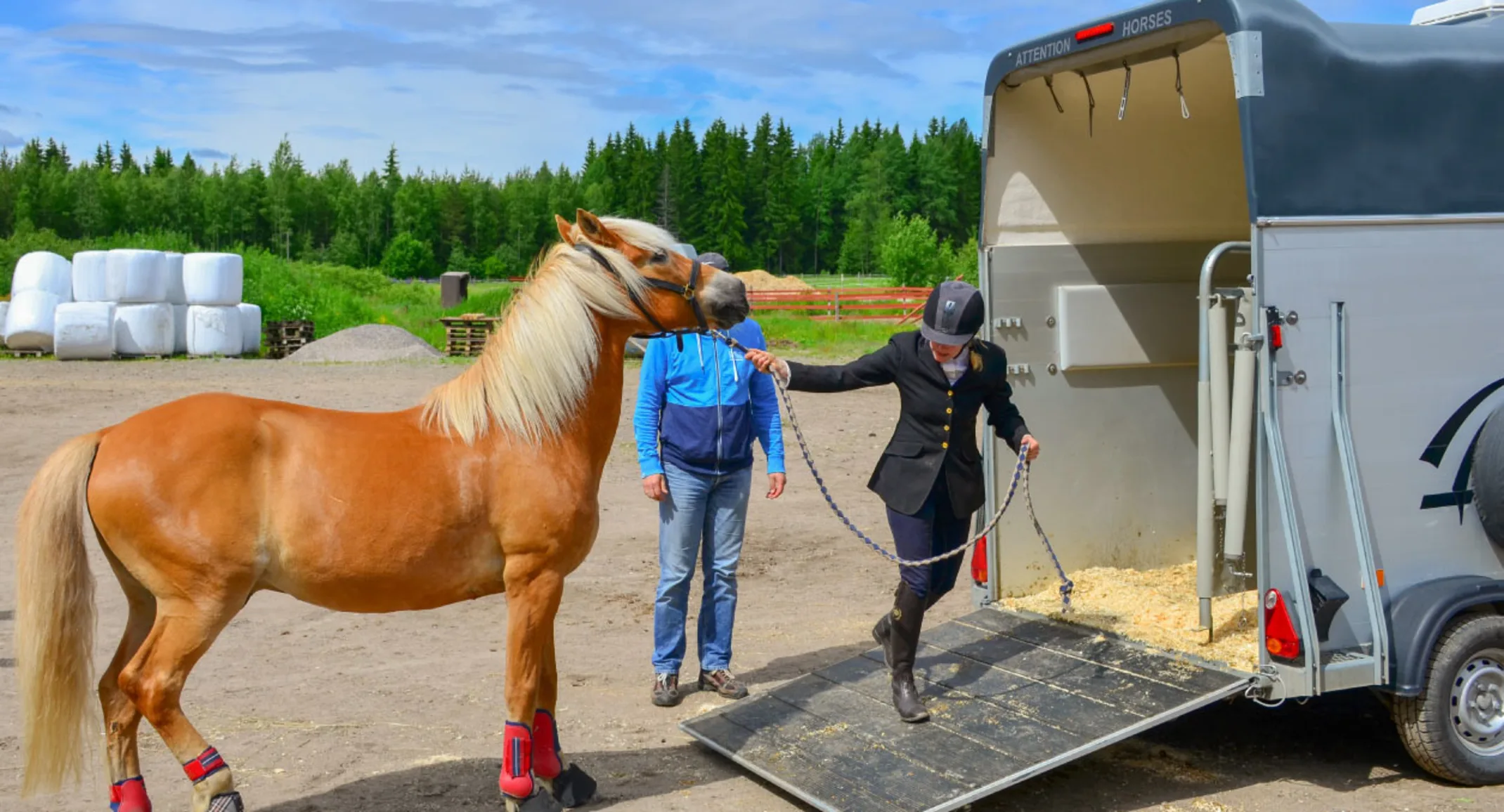Traveling and Trailering
General

Now that show and trail-riding season is here, it’s time to think about keeping your horses safe and healthy while they’re traveling. There are many things to think about when you contemplate traveling to shows and events with your horses. I certainly can’t begin to cover all of them here, but I’ll try to go over some simple ways to protect your horses.
If your horses will be traveling, it is very important to make sure that they are up to date on their vaccines. The most crucial of these are Eastern and Western Encephalitis, Tetanus, West Nile Virus, Rabies, Flu and Rhino. Eastern, Western, and West Nile are all transmitted by mosquitoes so it is possible for a horse to become infected no matter where they travel or are stabled. Tetanus is caused by a bacteria that lives in the soil and environment. The most common route of infection is through a wound. Rabies is transmitted by infected animals through bites or saliva. In this area, the most common culprits are infected skunks, raccoons, and foxes. Flu and Rhino are respiratory viruses that are passed from horse to horse in nasal secretions.
To keep your traveling horses safe, be sure to keep up to date on these vaccines. In addition, when at large gatherings of horses, do not allow your horse to touch noses or come in contact with unfamiliar horses, and do not share feed or water buckets with others. Examine your horse daily for any wounds, and contact your veterinarian if any seem deep or severe. Puncture wounds are especially worrisome as the Tetanus bacteria can easily flourish in them. Your veterinarian will give your horse a Tetanus booster for any significant wound if it has been more than 6 months since his last vaccination. If you see any suspicious wildlife, steer very clear of them. It is most likely that they will avoid you, but it’s just not a chance you should take.
Another concern when traveling with your horses is the possibility of them picking up internal parasites from other horses at the event. Not all farms and horses harbor the same types and strains of worms. Keep your horse isolated from unfamiliar horses, and do not allow him to graze in areas of manure contamination. If possible, limit your horse’s forage intake to hay that you have brought from home. Feeding from a hay bag will limit his exposure to parasites that may be present in the grass.
Some horses are very picky about the water they will drink and show a clear preference for a familiar taste. If you will be traveling regularly, try flavoring his water at home with molasses or unsweetened Kool-Aid until he drinks it willingly. Then when you are at an unfamiliar venue, you can “spike” the water with his familiar flavor so that he will readily drink it and not become dehydrated. This is even more important for horses that will be working hard while they are away from home. Another option is to bring water from home so that he will always have water to which he is accustomed. This is easily accomplished for a one day show, but is somewhat difficult for a lengthy stay. Some trailers can be equipped with a water tank that fits either into or under the gooseneck area to make this more practical.
Always protect your horse’s legs while traveling by applying a sturdy set of shipping boots before he gets on the trailer. These boots will protect his legs in the event that he steps on himself or has a “moment” loading or unloading. They are also a small amount of insurance against severe wounds in the unfortunate event that the trailer is involved in an accident. Severe injuries may still occur, but even a small amount of protection is better than none at all. Have fun traveling with your horses this summer, but do your best to keep them safe as well. It is always better to think ahead than to wonder what went wrong.
Michelle Egli, DVM
Delmarva Equine Clinic
